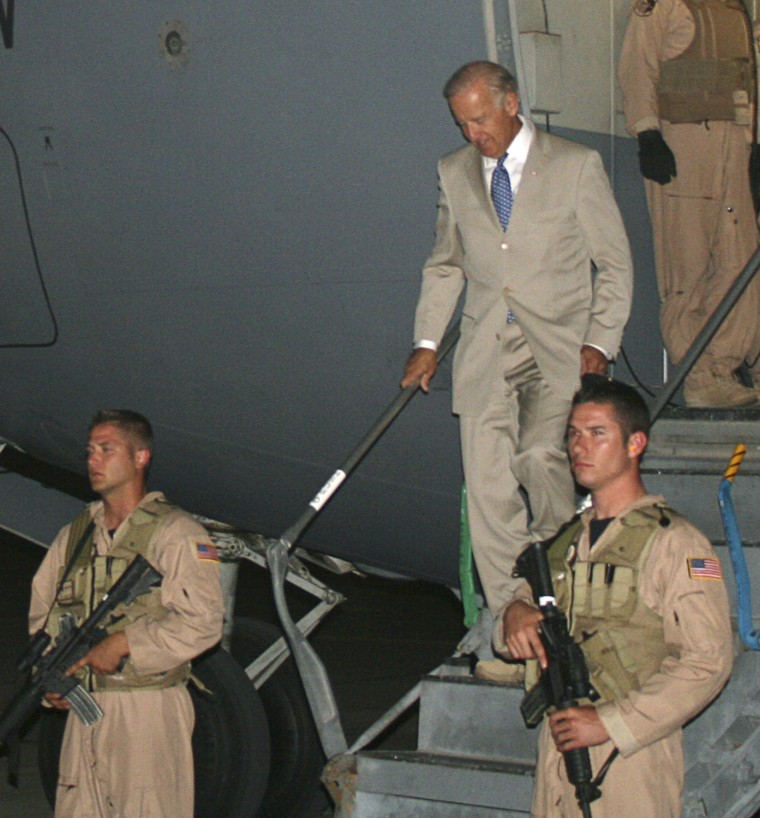Vice President Joe Biden arrived in Iraq on Thursday to visit U.S. troops and meet with Iraqi leaders, including President Jalal Talabani and Prime Minister Nouri al-Maliki.
A White House statement said Biden will reiterate the U.S. commitment to carry out President Barack Obama's plan to withdraw combat forces. He also will press Iraqi leaders to make more progress toward political reconciliation. It's his first trip to Iraq as vice president.
Biden arrived just two days after U.S. combat troops withdrew from Baghdad and all of Iraq's cities and towns. Al-Maliki named June 30 "National Sovereignty Day" and declared it a public holiday.
On that same day, June 30, the White House said that Biden will oversee the administration's Iraq policy and work with its government to overcoming their political differences and achieve reconciliation.
He arrived as violence flared for another day in the Iraqi capital, with bombings killing at least three people in the Baghdad area.
Elsewhere, a car bomb near the northern city of Kirkuk killed one man and wounded six more, police said.
In Baghdad, the violence began when a roadside bomb struck an Iraqi army patrol, killing an Iraqi soldier and wounding seven other people, police and hospital officials said.
The attack occurred near a bridge that controls access to the walled-off Green Zone in central Baghdad.
A car bomb later exploded near a market on the highway south of Baghdad, killing at least two people and wounding 15, according to a police officer at the regional command.
The officials spoke on condition of anonymity because they weren't authorized to release the information.
Deadly month of June
On Tuesday — the official day of the withdrawal, which the Iraqi government dubbed National Sovereignty Day — a car bomb killed more than 30 people in the northern city of Kirkuk.
But Thursday's bombings were the first deadly attacks recorded in Baghdad after the Iraqis officially assumed responsibility for securing the cities and most of the 130,000 American troops in Iraq pulled back from urban areas to large bases on the outskirts.
Persistent violence has raised concerns about the readiness of Iraqi forces to take over their own security.
At least 447 Iraqi civilians were killed in June, double the toll from the previous month, according to an Associated Press tally.
Defense Ministry spokesman Maj. Gen. Mohammed al-Askari insisted his forces were on track in protecting the Iraqi people.
"The first phase of implementing the American forces withdrawal agreement has ended peacefully and successfully without any problems," he said at a news conference.
He said 168 bases and military sites have been handed over by the U.S. to the Iraqis, including 20 bases in the northern provinces of Ninevah, Salahuddin and Diyala, 86 bases in Baghdad, 46 in Anbar, 16 elsewhere.
The pullback from cities was part of a U.S.-Iraqi security pact and marks the first major step toward withdrawing all American forces from the country by Dec. 31, 2011. President Barack Obama has said all combat troops will be gone by the end of August 2010, leaving 30,000 to 50,000 troops in advisory roles.
Al-Askari predicted the number left would be on the lower end, saying all but 35,000 American troops would be withdrawing in the coming months.
"Now we are working on the second phase of the agreement which is reducing the American forces before their complete withdrawal on Dec. 31, 2011," he said.
